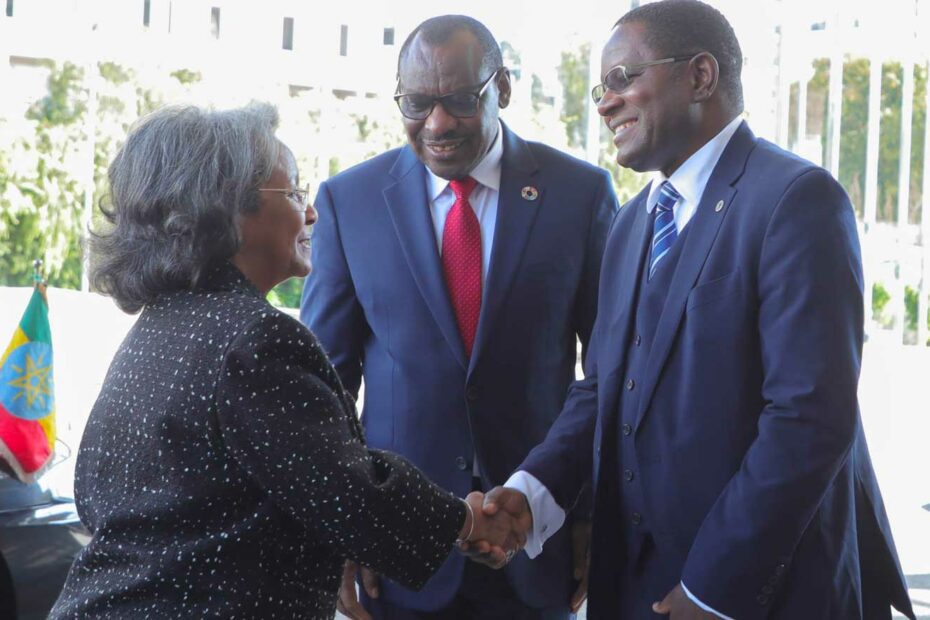The 18th African Economic Conference 2023, was facilitated by the African Development Bank, the United Nations Economic Commission for Africa, and the United Nations Development Programme. It was attended by business experts, private sector representatives, researchers, and youth to delve into Africa’s industrialization challenges and opportunities. The three-day conference commenced in Addis Ababa, Ethiopia, under the theme “Imperatives for Sustainable Industrial Development in Africa.”
Opening Speech by Ethiopian President Sahle-Work Zewde
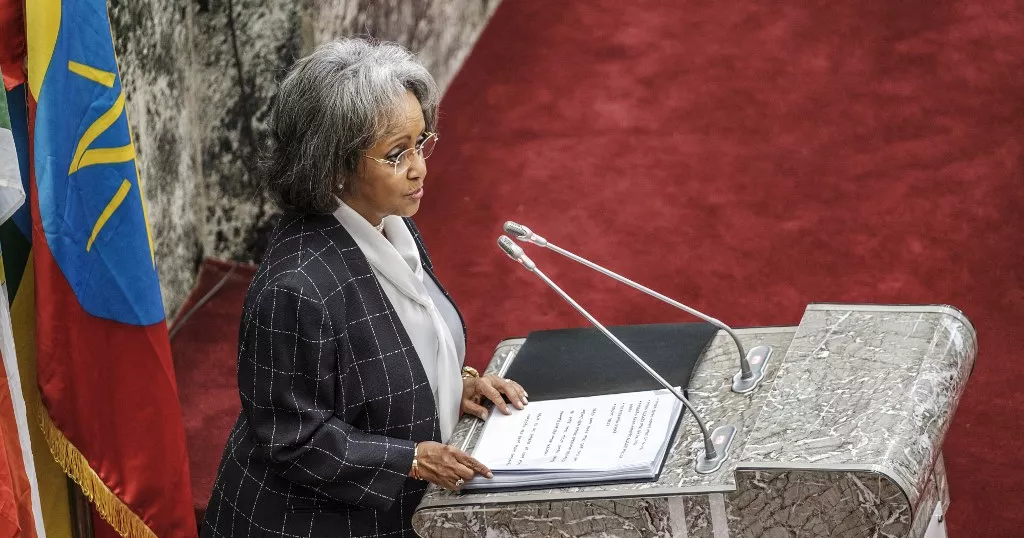
In her welcoming speech, Ethiopian President Sahle-Work Zewde emphasized the important role industrialization plays in advancing the economy.
The President highlighted the urgent need for a redefined narrative around Africa’s industrial growth. She emphasized growing domestic industrial sectors that can sustain external disruptions. President Sahle-Work stressed the importance of industrial policies that advance local industries, enhance productivity, and ensure competitiveness. Also, she noted that the COVID-19 pandemic showed the vulnerabilities of global production and value chains. Thus, necessitating a stronger focus on self-reliant industrial strategies.
Despite Africa’s status as home to rapidly growing economies and a promising young workforce, industrialization and economic transformation lag behind. President Sahle-Work showed that Africa has the potential as a future frontier labor market.
United Nation’s Perspective during 18th African Economic Conference 2023
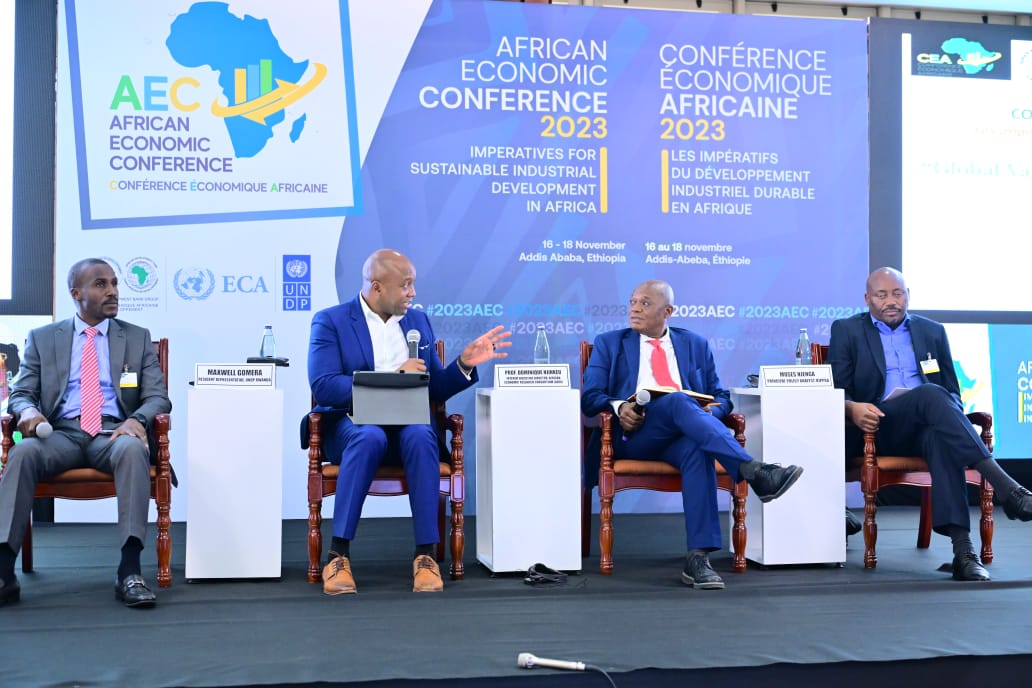
United Nations was represented by Claver Gatete, the United Nations Under-Secretary-General and Executive Secretary of the Economic Commission for Africa (ECA). The Under-Secretary urged Africa to develop policies and institutional capabilities essential for sustainable industrialization. The policies should also encourage inclusive development and structural transformation.
He emphasized that such efforts would pave the way for a stronger rebound from ongoing crises. Additionally, Gatete addressed the crucial nature of implementing the African Continental Free Trade Area (AfCFTA) agreement.
Expressing the ECA’s unwavering commitment, Gatete assured support for countries and regional economic communities to create national and regional implementation strategies. These strategies aim to integrate the AfCFTA agreement into their national priorities. Also, identifying key areas of competitive advantage along the way.
Another representative, Matthias Naab, Director of the Regional Service Centre at the United Nations Development Programme’s Regional Office for Africa, encouraged Africa to foster mutually advantageous public-private partnerships to improve the manufacturing industry across Africa.
He also praised the increasing role youths play towards achieving industrial development strategies. Naab noted the participation of young African researchers in the conference as evidence of their role in harnessing intellectual prowess. He emphasized that today’s and tomorrow’s industrialists are the youth. The institutions, therefore, must commit to empowering them to spearhead the identification of pathways for progress.
African Development Bank’s Role Towards Driving Industrialization through Political Will & Intra-African Trade
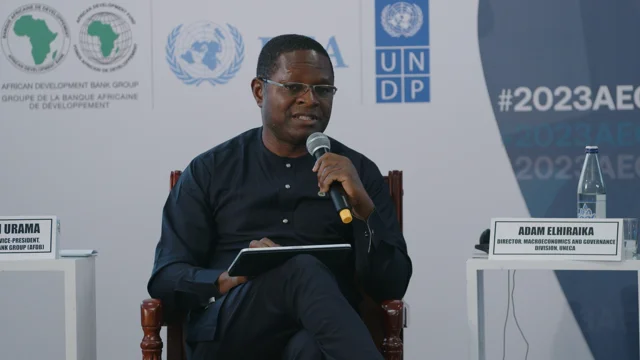
During a presentation, Kevin Urama, the African Development Bank’s Chief Economist and Vice President, urged African nations to adopt a fresh approach and enact transformative policies that encourage local manufacturing capabilities and the consumption of locally produced goods.
“To stimulate indigenous industrial growth in Africa, Africans must embrace an ethos of ‘thinking, producing, and consuming African’,”.
Kevin Urama, ADB Chief Economist, and Vice President
Urama outlined various strategies to increase industrialization and structural transformation on the continent. These include the implementation of a strategic industrial policy advocating for local production and consumption, as well as the development of domestic and regional value chains.
“Policies like promoting local content and franchising could yield immediate positive outcomes,” Urama suggested. He additionally highlighted Africa’s possession of natural resources crucial for the electric vehicle technology revolution.
Moreover, Urama insisted on the African Development Bank Group’s collaborative role with partners in propelling Africa’s industrialization and economic metamorphosis, particularly through its High 5 priority initiative, ‘Industrialise Africa’.
Unlocking Africa’s Potential: UNIDO’s Vision for Prosperity
During a virtual address, Ms. Fatou Haidara, Deputy Director-General of the United Nations Industrial Development Organization (UNIDO), highlighted Africa’s promising prospects, including its youthful population, thriving small and medium enterprises, renewable energy prospects, and abundant natural resources, as key elements for the continent’s success.
Haidara emphasized,
“To achieve prosperity, Africa needs robust local manufacturing capabilities, inclusive access to global financial markets, sustainable value chains, and proactive climate action.”
Ms. FAtou Haidara, Depty Director-General , UNIDO
She underscored UNIDO’s unwavering dedication to aiding countries in enhancing their capacities, conducting analyses, and providing evidence-based policy guidance to realize these prerequisites for a prosperous Africa.
Intra-African Trade and the Role of the African Continental Free Trade Area (AfCFTA)
Unleashing African Potential: 18th African Economic Conference 2023
A group of academia, private sector gurus, and finance institution experts converged during the 18th Africa Economic Conference, to advocate for African nations to leverage the African Continental Free Trade Area (AfCFTA). The emphasis was on boosting intra-continental trade to improve small and medium enterprises (SMEs) and enhance industrialization in Africa.
At the plenary session titled “Fostering African Industrialization Through Linkages of Small and Medium Enterprises to Global Value Chains,” the following personalities graced the platform:
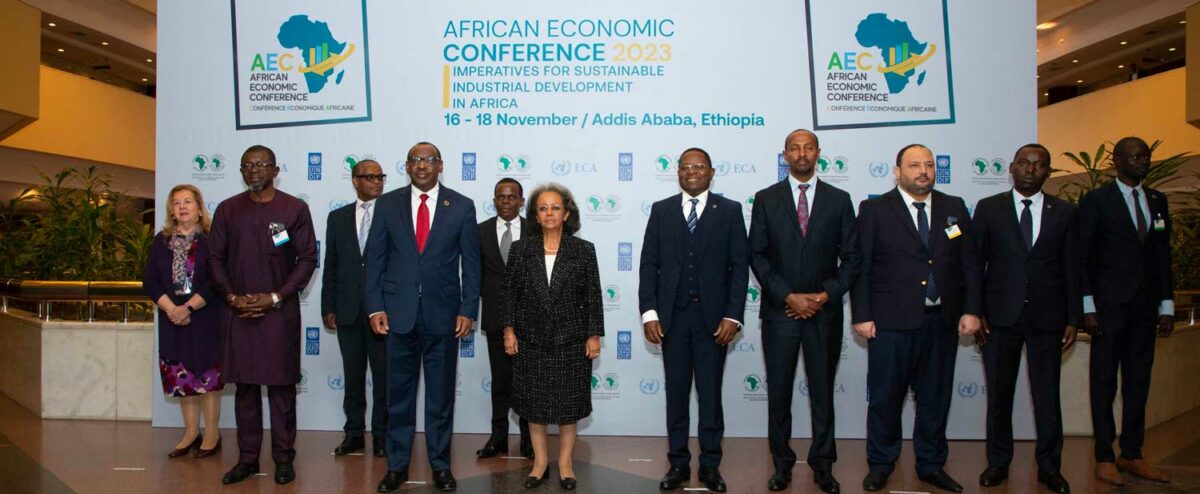
- Prof. Banji Oyelaran-Oyeyinka, Senior Special Advisor to the President of the African Development Bank Group.
- Prof. Dirk Willem te Velde, Principal Research Fellow and Director of International Economic Development, Overseas Development Institute (ODI).
- Ms. Aurelia Patrizia Calabrò, UNIDO’s Representative and Director of Regional Office Hub in Ethiopia, also the Special Representative to the African Union for the United Nations Industrial Development Organization.
- Mr. Marcio Cruz, IFC Principal Economist, Economic and Market Research Department.
- Engr. Yusuf Binji, Managing Director and CEO of BUA Cement Plc, Nigeria.
Leading the discussion was Mr. Jonathan Nzayikorera, African Development Bank Executive Director. He guided the panel through crucial inquiries. He probed into processes by African SMEs to move from primary commodity exports to global manufacturing networks. At the same time looking for insights into policy frameworks promoting SME capabilities.
Ms. Calabrò, drawing examples from SMEs in Italy, stressed the significance of organization and vertical integration for SMEs, citing UNIDO’s advocacy for cluster development centred on five Cs: coordinate, compete, conform, connect, and credit.
Symbiotic Relationship
Engr. Binji emphasized the symbiotic relationship between big firms and SMEs, showing the need for local solutions tied to intra-African trade. He encouraged larger firms to actively help smaller organizations, drawing from his own firm’s experience and its support from various financial entities.
Mr. Cruz from IFC delved into the challenges faced by SMEs in securing funding, particularly in the context of disruptive technologies like fintech, shedding light on IFC’s efforts to bridge this gap with a $200 million catalyst fund aimed at allowing access to credit.
Prof. te Velde identified the participation of African companies in global value chains, yet showed capacity limitations hindering timely, quality, and scaled supply. He mentioned the challenge of competitiveness, citing the disparity in productivity gains between African economies and more developed counterparts.
Collectively, these insights underscored the concerted efforts in policy, finance, and collaboration to bolster SMEs. With the potential to tap into global markets, and enhance Africa’s industrial potential.
Utlizing African Natural Resources
Regarding solutions, Prof. te Velde recommended a dual approach encompassing targeted policies and finance. He noted the potential of the African Continental Free Trade Area (AfCFTA), enhancing regional trade and competitiveness. Beyond trade, he emphasized its capacity to forge stronger connections across Africa, reducing trade policy barriers. Additionally, he mentioned Africa’s reservoirs of green energy and critical minerals as pivotal assets for driving industrial development.
Prof. Oyelaran-Oyeyinka from the African Development Bank noted Africa’s incomplete structural transformation, attributing it to inadequate industrialization. He pointed out low-income African nations retaining an agricultural GDP contribution exceeding 10%. However, middle-income countries had transitioned toward industrial societies, better.
He pinpointed challenges linked to skills gaps, poor education systems, and institutional challenges. Prof emphasized the need to address production barriers before tackling impediments to innovation. Also, he stressed the necessity for SMEs to operate within horizontally integrated environments. The setup allows small enterprises to source local inputs. While mitigating challenges like foreign exchange accessibility, and closing up the 18th African Economic Conference 2023.

